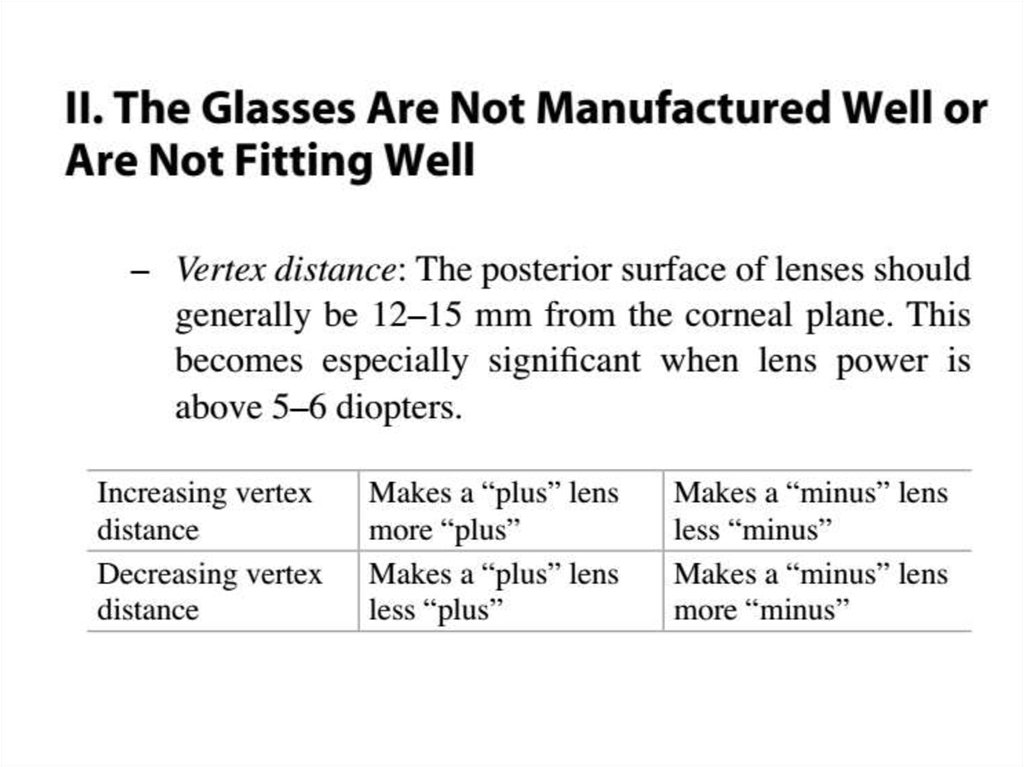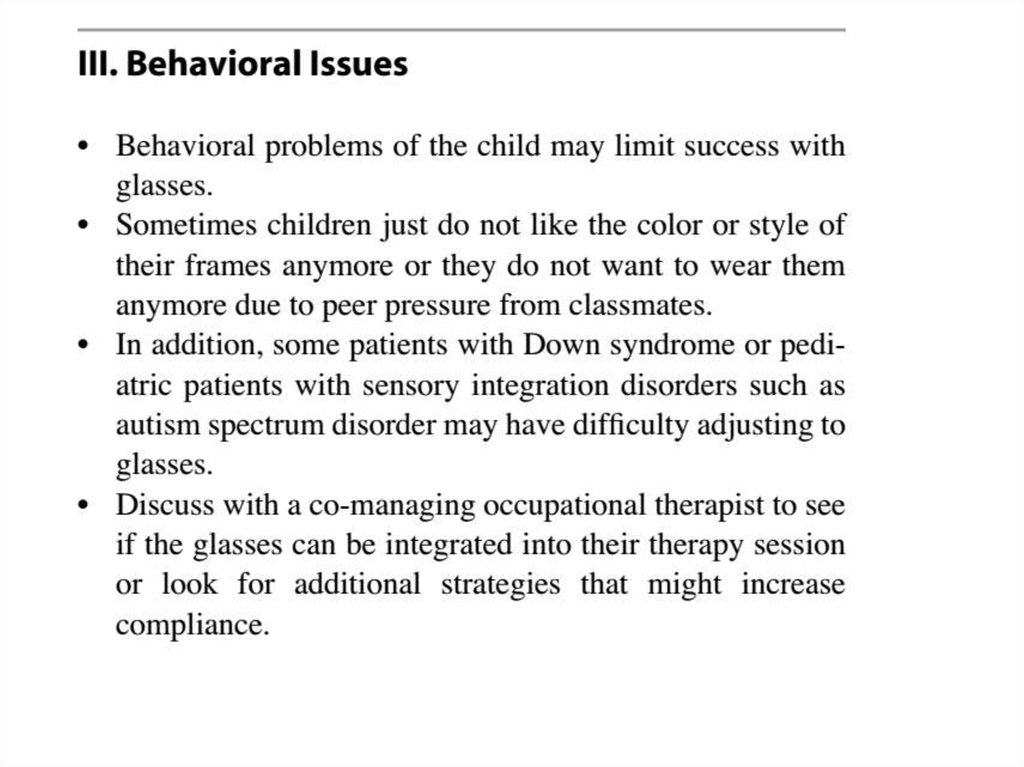Similar presentations:
Детская рефракция. Очки детям
1. Детская рефракция. Очки Детям.
2. Первая встреча с дитём.
3.
4.
5.
6.
7.
8.
9. Поговорим об эмметропизации
10.
11.
12.
13.
14.
The probability of reaching 2.00 D by 18 months of age as a function of the level ofcycloplegic spherical equivalent at three months of age. From Mutti DO, Mitchell GL,
Jones LA, Friedman NE, Frane SL, Lin WK, Moeschberger ML, and Zadnik K.
Accommodation, acuity, and their relationship to emmetropization in infants. Optom
Vis Sci 2009; 86: 666–676. Reproduced with permission.
15.
16.
17.
18.
19.
20.
21.
22.
23.
24.
25.
26.
27.
28.
29.
30.
31. Поговорим о циклоплегии.
32.
33.
34.
35.
36.
37.
38.
39.
40. Поговорим об амблиогенных рефракциях
41.
42.
43. Когда назначать очки. Общие подходы.
44.
45.
46.
47.
48.
49.
50.
51.
52. Очки при гиперметропии
53. • Children have high accommodation amplitudes, and therefore, mild to moderate hypermetropia does not require correction in the
absence ofsigns such as eso
tropia or asthenopic or visual
symptoms
54.
55.
56.
57.
58.
59.
60.
61. Очки при астигматизме
62.
63.
64. for oblique astigmatism—plus axis between 15° and 75° or 105° and 165°—it is probably preferable to correct oblique astigmatism
of smallermagnitudes [2]. As an example, a 3-year-old
with a cycloplegic refraction (CRx) of plano +
1.50 × 090 OU would not necessarily require
glasses, while a 3-year-old with CRx of
plano + 1.50 × 045 OD and plano + 1.50 × 135
OS is preferably prescribed glasses based on
current recommendations.
65. if astigmatic errors of magnitudes less than those listed above are present in conjunction with amblyogenic or visually
significant degrees of hyperopia or myopia, theyshould be fully corrected to provide the most focused image
possible. For example, a 2-year-old with a CRx of
-6.00 + 1.00 × 090 OU should be prescribed the 1 diopter of
astigmatism, even though 1 diopter of WTR astigmatism
found in isolation does not warrant glasses in a toddler.
Finally, older school-aged children with smaller degrees of
astigmatism may benefit from spectacle correction if it provides
relief of symptoms such as blurry vision or asthenopia.
66. Очки при анизометропии
67.
68. Очки при миопии
69.
70. • Infants and very young children are most interested in objects at an arm’s length up to 2 m from them, and therefore, low
levels of myopia areeasily tolerated. In contrast, schoolage children may benefit from
correction of low levels of myopia to
meet visual demands of school
activities’ viewing



























































































 medicine
medicine








